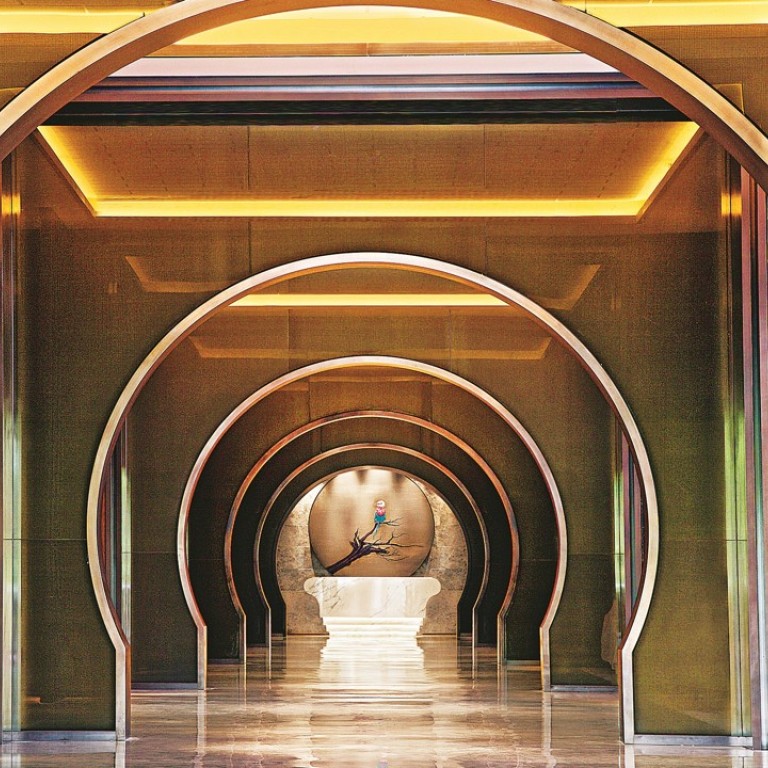
Home-grown Chinese hotel brand NUO wants to take over the world
- With its first hotel opening in Beijing in 2015, NUO plans to expand to cities from New York to Kuala Lumpur over the next 15 years
- Hotels will provide a home away from home for Chinese travellers
The world-famous Waldorf Astoria hotel in New York might now be under the control of the Chinese government – it announced in February that it had seized control of Anbang Insurance Group, which owns the hotel – but China’s ambition is to set up a home-grown hotel brand that will have outlets around the world.
Spearheading the drive is the state-owned Beijing Tourism Group (BTG), which boasts over 100 hospitality, dining, fashion, transport and other industry brands.
Online video reveals dirty hygiene secrets of Chinese hotels
BTG set up NUO Hotel in the city centre of Beijing in 2015 as part of its restructuring to help make Chinese brands go global. The hotel’s general manager Adrian Rudin says 15 to 20 hotels under the NUO brand will be opened in 10 to 15 years in cities including Rome, Moscow, Singapore, Kuala Lumpur, Sydney, Paris, London, New York and Dubai.
“We will start off in a few key Chinese cities first, including Shanghai, Guangzhou and Shenzhen,” says Rudin. “Then the brand will go overseas.”
The goal is to have a hotel in each major city around the world so that Chinese national leaders can be put up in home-grown hotels on their overseas trips, says Cindy Zhu, NUO’s director of marketing communications.
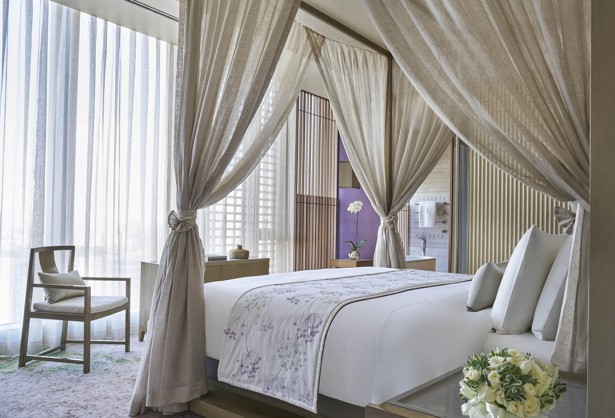
BTG’s move follows the trend of Chinese low-budget hotels expanding overseas. The hotel brand 7 Days Inn, for example, which has over 2,000 hotels in China, opened outlets in the Austrian cities Linz and Salzburg in 2016. Another budget hotel chain, GreenTree Inns, has been establishing branches in the US, Thailand and Vietnam since 2015.
The NUO Hotel is managed by Key International Hotels Management Company, a joint venture between BTG and Kempinski Hotels, Europe’s oldest luxury hotel group, and is a showcase for classical and modern Chinese opulence.
Kettles in the guest rooms are made from delicate blue-and-white porcelain. The oils and fragrances used in the hotel’s spa treatments are inspired by classical Chinese herbology tome The Compendium of Materia Medica, written by the famed Ming dynasty doctor Li Shizhen. Chinese luxury car firm Hongqi provides the limousines for the airport pickups.
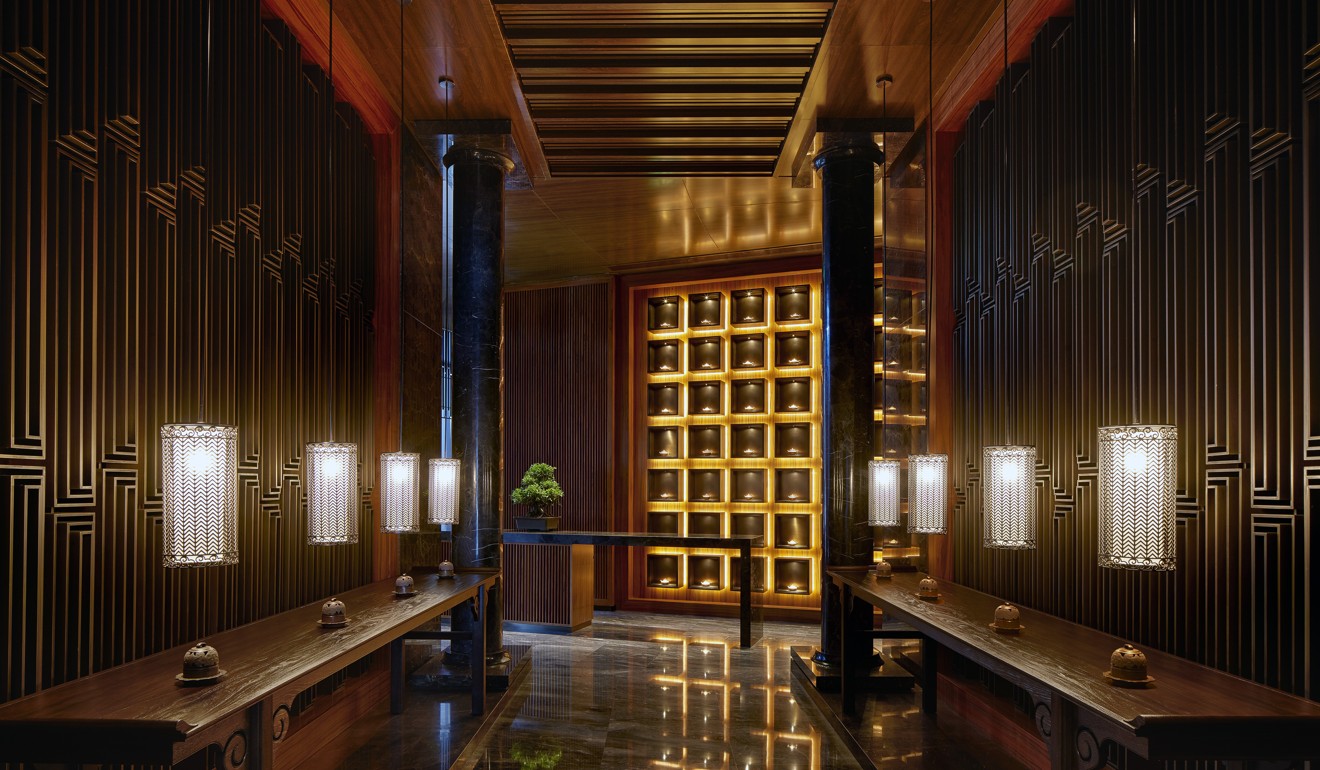
Zhu says that the NUO brand was set up because reforming an old brand is difficult. It includes NUO Travel, a high-end, tailor-made travel agency, which launched in 2013 and has a shop in the hotel. The company designs trips for clients to destinations including Cuba and the North and South poles.
The hotel also serves as a research and development centre for some of the group’s own products, including porcelain, tea and baijiu – a Chinese liquor. “We have our own tea plantations to produce tea leaves for hotel guests,” Zhu says. “We are waiting for the opportune moment to launch such products under the NUO brand.”
While the Ming dynasty serves as the theme for NUO Hotel in Beijing, other hotels under the brand will have different themes, says Rudin, who had managerial roles at Shangri-La Hotels and Resorts, Mandarin Oriental Hotel Group and The Peninsula Hotels group before joining NUO in 2013.
“We are working on another hotel themed on the Qing dynasty which I cannot name,” Rudin says. “For the one in Italy, we will create the hotel brand revolving around Silk Road trading and Marco Polo. The one in Shanghai will be about its rich art deco heritage. The one in Xian will be about terracotta warriors.”
Why not bring the Chinese culture to hotels outside China so Chinese travellers can also have their own breakfast, congee and tea when overseas?
Rudin is from Switzerland, a country renowned for its hotel management. He says the successful Swiss model combines wellness, spectacular geography and high-end hospitality – all features that China also boasts.
“There are cool hotels in Switzerland which have hot tubs and different kinds of treatments for people to relax and become healthy again. Then similar high-end hotels spread to England and Europe and came to China too. They brought their culture, breakfasts and croissants so foreigners can eat their own breakfast when they travel overseas. With over a hundred years of history, they are well established,” he says.
“Now China has many outbound travellers which increase by 10 to 15 per cent every year. There are about 120 million Chinese travellers going abroad every year. Why not bring the Chinese culture to hotels outside China so Chinese travellers can also have their own breakfast, congee and tea when overseas?”
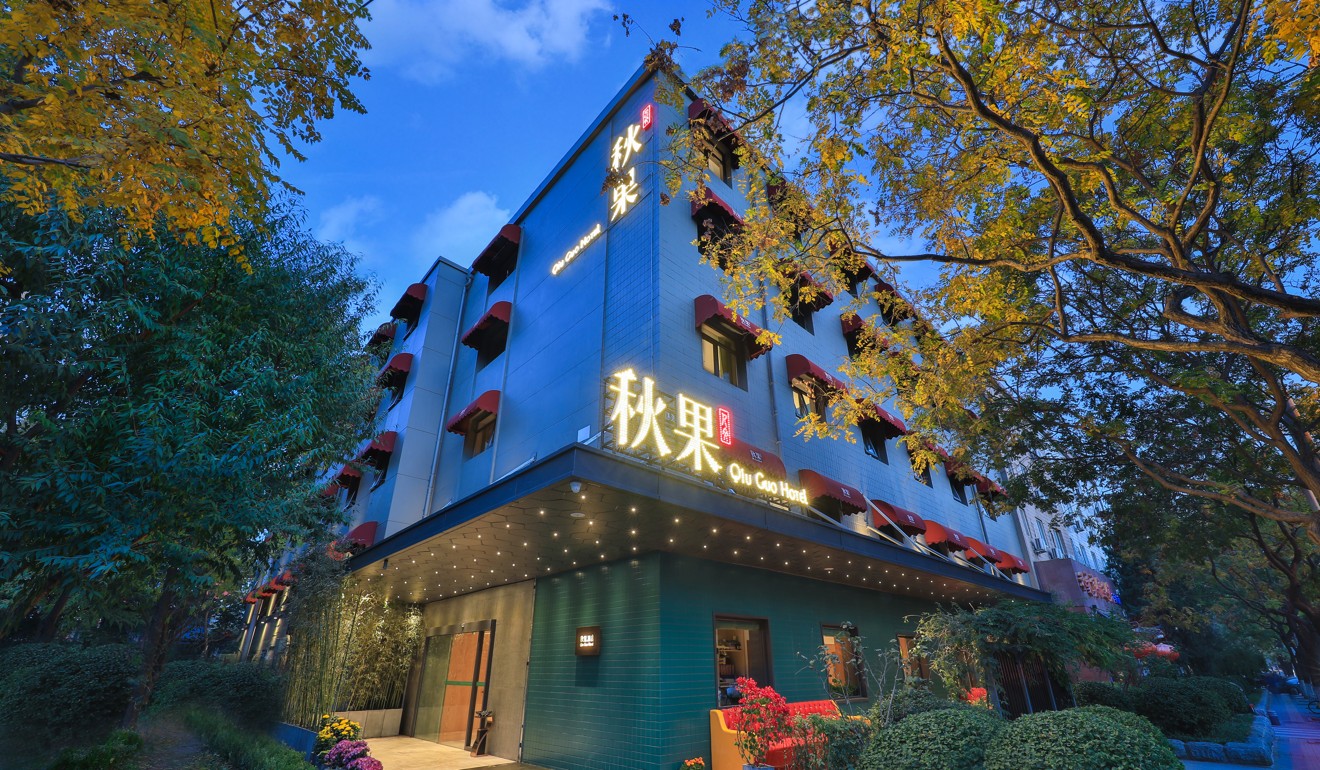
Beijing-based warehouse manager Patrick Yang says it is high time that China follows Japan’s example of setting up high-end hotels under a home-grown brand – which is does through JAL Hotels – so travellers can enjoy a “home away from home”.
“On my overseas travels, I often miss quality Chinese cuisine like Peking roast duck, or soybean milk and deep-fried dough sticks for breakfast,” says Yang. “The quality of overseas Chinatown fare is usually not as good.”
Yang adds that having a home-grown hotel chain around the world like Japan’s JAL is also a manifestation of national power.
“Japanese people are proud of their culture, like sushi. They reserve the best foodstuffs for their own consumption and export the lesser fare. Overseas Japanese can enjoy this special treatment in JAL hotels too. China should do the same.”
China’s hotel facial recognition check-ins and AI smart rooms are here to stay
Western hotel brands are also striving to be China-friendly in their quest to attract big-pocketed Chinese visitors.
Crowne Plaza Suites in Houston, Texas offers Chinese language newspapers, Qingdao beer and celebrates Mid-Autumn Festival and Lunar New Year with decorations.
Spanish firm Chinese Friendly International offers an endorsement scheme for hotels in Europe, and advice on how to make their hotels feel like home for Chinese people. There should always be hot drinking water available, for example, as well as menus and information in Mandarin, and Mandarin-speaking staff – who should accept credit cards with two hands, and always address the oldest person in the party first.
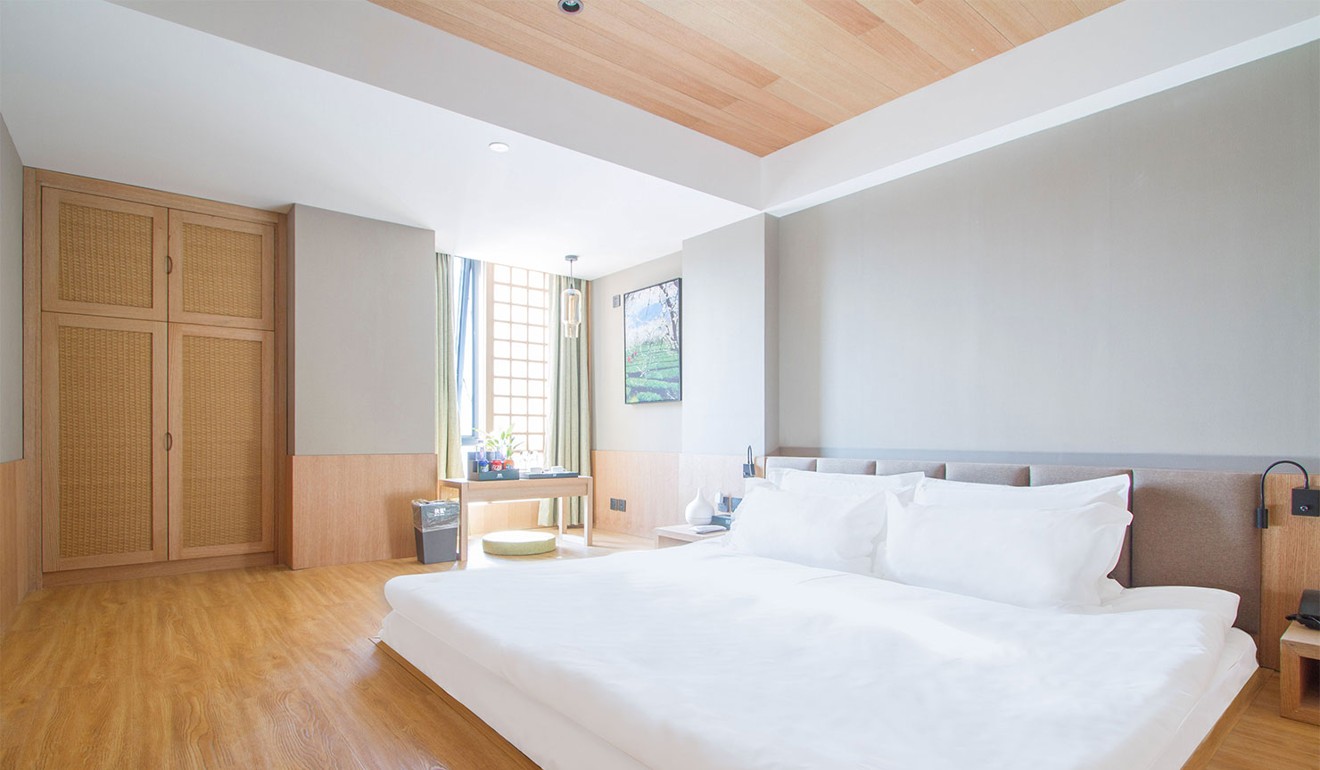
Meanwhile, NUO Hotel has collaborated with Lausanne Hospitality Consulting from Switzerland and set up an academy to train its staff in areas of talent development, executive education, branding and hotel management. The hotel sends two students to Switzerland for training every year, and has developed a certification system for its employees.
“The academy is based in the NUO Hotel,” says Rudin. “The academy has brought in pastry chefs to help our staff make better bread and pastries. We are also forming our sommelier team and have sent them to competitions. We want to go from being a good to a great hotel – to compete internationally.”
Also planning a major expansion drive is Qiu Guo Hotel, a mid-range Chinese chain started in 2016 with six outlets in Beijing. The chain adopts a minimalist, but elegant, theme, and has separate floors for women to enhance their safety.
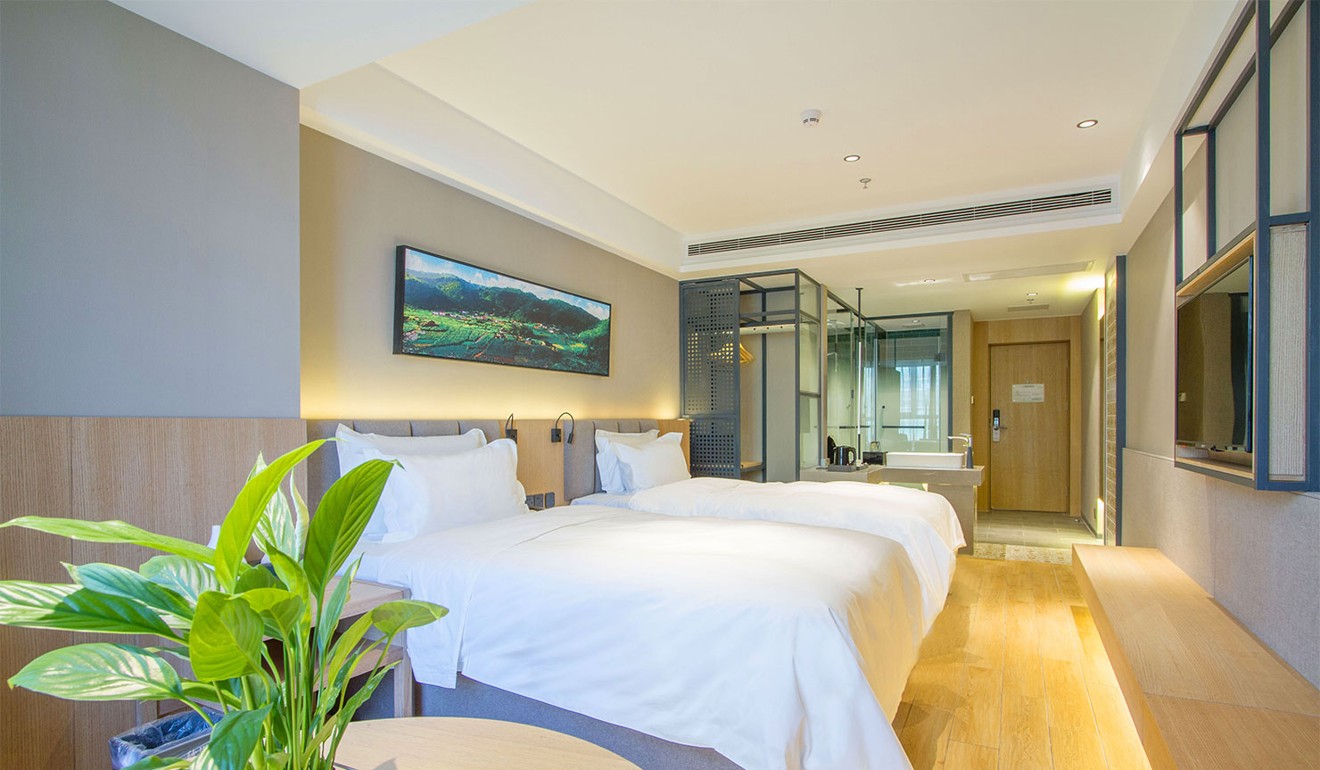
Its founder Liu Wei, who served in the Shenyang air force, says they will open 30 more outlets next year, with the goal to have 300 hotels in China in three years. He says the Chinese government’s crackdown on extravagance means their new clientele are Chinese civil servants and state-owned companies’ employees who used to stay in high-end hotels in the past.
“The rising affluence of the Chinese also makes many want to upgrade from low-end to mid-range hotels,” he says.
For now, the expansion plans of NUO and Qiu Guo focus on cosmopolitan hotels in urban settings, but Rudin says that in the future they will explore expanding to countryside settings in China which have amazing geographical formations – not least because China is going to host the Winter Olympics in 2022.
How ‘smart’ speakers and facilities could change China’s hotel industry for good
But Liu has even bigger ambitions. “To attain the hotel-to-population ratio of the US, the number of hotels in China should be eight times the current number. China has 1.3 billion people. Just Beijing has several tens of millions of people. The ceiling for China’s market expansion is very high.”

